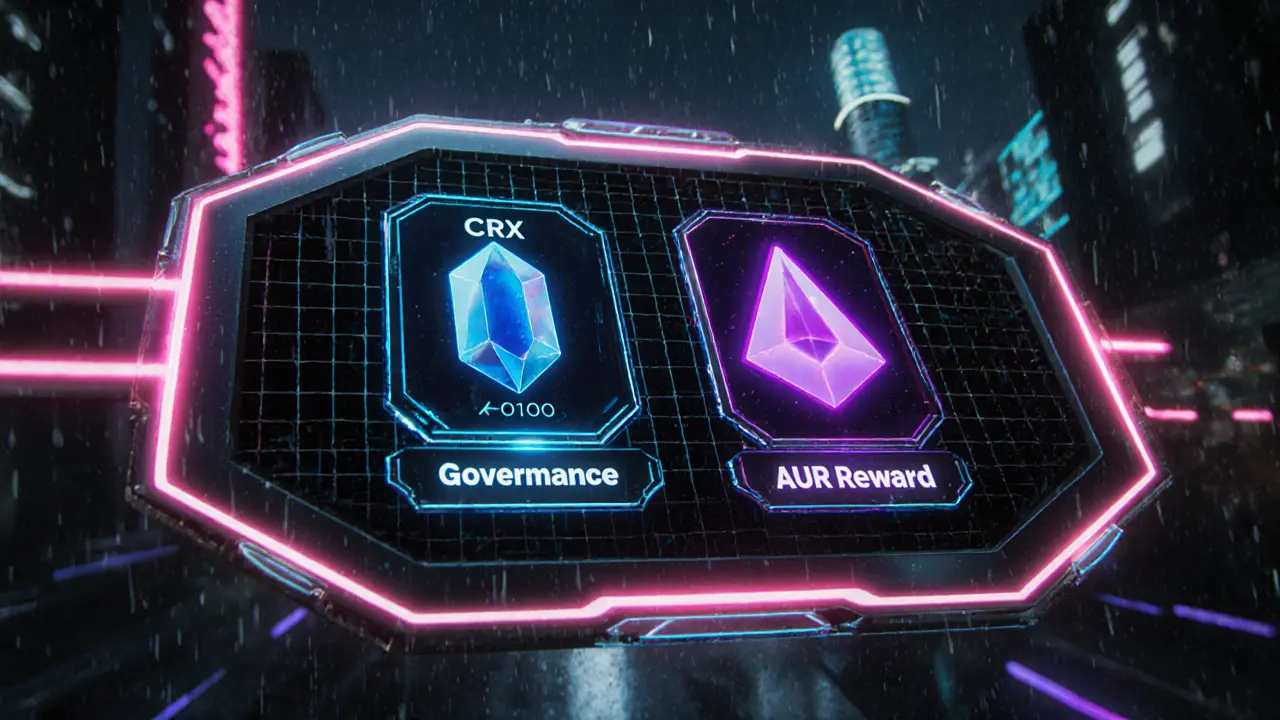A detailed review of MIND Games CORTEX covering its dual-token system, built‑in DeFi tools, gameplay integration, security, and how it compares to traditional crypto exchanges.
Read MoreCrypto Gaming Exchange – What You Need to Know
When exploring Crypto Gaming Exchange, a platform that lets gamers buy, sell, and swap in‑game assets using crypto, you quickly see it blends two fast‑moving worlds. GameFi, the combination of gaming and decentralized finance fuels most of the demand, while decentralized exchange, a peer‑to‑peer trading protocol that removes a central authority provides the technical backbone. Both concepts rely on airdrop, a distribution method that gives free tokens to early users or community members to bootstrap liquidity and attract players. Understanding how these pieces fit together helps you decide which platform to trust and how to maximize your virtual earnings.
Why GameFi Drives Crypto Gaming Exchanges
GameFi introduces real‑world value to digital items, turning skins, heroes, or virtual land into tradable assets. This shift means a gamer can earn crypto while playing, then move those earnings onto a crypto gaming exchange for instant cash‑out or reinvestment. The exchange must support multiple token standards—ERC‑20 on Ethereum, BEP‑20 on Binance Smart Chain, and Solana SPL—so that assets from diverse games can flow freely. Platforms that combine low‑fee swaps with strong security, like those highlighted in our exchange reviews, let users trade without fearing hidden charges or hacks. The result is a vibrant ecosystem where play‑to‑earn meets real‑money markets.
Another key factor is community governance. Many crypto gaming exchanges issue their own utility tokens—think of the MAGAVERSE (MVRS) token or FONE token—granting holders voting rights on fee structures or new game listings. This token‑centric model creates a feedback loop: the more active the community, the more attractive the exchange becomes for developers seeking exposure. Consequently, reviewing tokenomics becomes as important as checking swap fees. Our guides break down supply caps, reward schedules, and staking options so you can spot a solid token versus a hype‑driven pump.
Security can’t be an afterthought. A crypto gaming exchange inherits the same risks as any DeFi platform: smart‑contract bugs, phishing attacks, and regulatory gray zones. That’s why our exchange deep‑dives assess audit reports, insurance funds, and KYC procedures. For gamers new to crypto, we also cover how to set up a hardware wallet, enable two‑factor authentication, and safely transfer NFTs. By following these steps, you lower the odds of losing valuable NFTs or tokens when moving them between games and exchanges.
Liquidity is the lifeblood of any exchange. Without enough buyers and sellers, you’ll face slippage that eats into profits. Our collection includes reviews of high‑volume DEXs that specialize in gaming pairs, such as IceCreamSwap (Core) and DogeSwap, which offer deep pools for popular GameFi tokens. We also explain how to provide liquidity yourself, earn a share of transaction fees, and manage impermanent loss when prices swing. These practical tips let you turn a passive holding into an income stream while supporting the exchange’s ecosystem.
Finally, airdrops remain a powerful tool for both attracting users and rewarding early adopters. Platforms often launch promotional drops tied to new game releases or token swaps. Our airdrop guides show you how to verify legitimacy, claim safely, and avoid scams that masquerade as free giveaways. Keeping an eye on airdrop calendars can boost your portfolio without extra investment, especially when the dropped token later lists on a crypto gaming exchange.
All these pieces—GameFi, DEX tech, security, liquidity, and airdrops—interlock to create a functional crypto gaming exchange. Below you’ll find detailed reviews, step‑by‑step guides, and the latest news that together paint a clear picture of the space. Dive in to find the exchange that matches your play style, the token you should watch, and the strategies that turn gaming into real‑world earnings.
